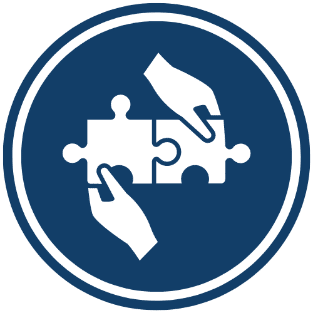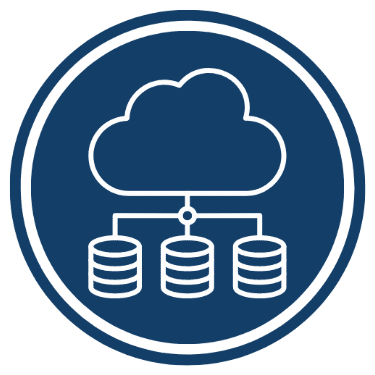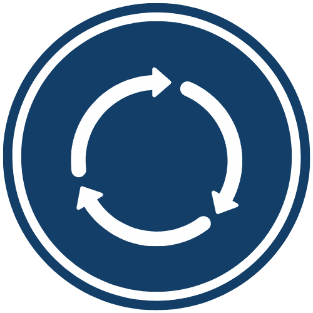Salesforce Case Management for Nonprofits
As nonprofits strive to make a lasting impact on the communities they serve, efficient and organized client tracking becomes paramount. Salesforce case management is the cornerstone of this effort, enabling nonprofits to meticulously monitor and evaluate the needs and progress of clients and their families. Our in-depth exploration of case management for Salesforce unveils a powerful toolset that empowers nonprofits to streamline their operations, enhance collaboration, and optimize client outcomes. Dive into our resource to discover the transformative capabilities of Salesforce case management, where seamless integration and intuitive interfaces converge to elevate the way nonprofits manage their vital mission-driven work.

Provisio: Nonprofit Salesforce Case Management Specialists

Provisio stands as the foremost authority in Salesforce case management within the realm of Health and Human Services, distinguishing itself as the largest dedicated Salesforce consultancy with an exclusive focus in this critical sector. Our mission is to empower change-makers within Health and Human Services, providing them with the precise technology and Salesforce solutions required to connect their missions with the individuals and communities they serve.
Through our comprehensive approach, we enable you to forge meaningful connections between your mission and the individuals and communities you serve. With Provisio as your partner, you can trust our specialized insight to navigate the complexities of Salesforce case management, facilitating the advancement of your organization’s goals with efficiency and precision.
What Are Case Management Systems?
Case management is a comprehensive and systematic approach employed by nonprofits to effectively organize and coordinate services for individuals or groups facing complex challenges. It involves the utilization of specialized software systems designed to streamline the management of cases, ensuring a cohesive and client-centered process.
Nonprofit organizations often use case management systems to track and monitor the progress of their clients, maintain detailed records, and facilitate communication among staff members. These systems enable nonprofits to deliver targeted and personalized support, enhance collaboration, and optimize resource allocation.
Case management goes beyond simple data management, encompassing the holistic assessment of client needs, the development of tailored intervention plans, and ongoing evaluation to ensure that assistance aligns with evolving requirements. By leveraging case management systems, nonprofits can enhance their efficiency, improve outcomes, and foster a more responsive and compassionate approach to addressing the diverse needs of their beneficiaries.
Provisio Partners has:
41
Salesforce certified staff
177
Certifications across the Salesforce ecosystem
Key Features of Salesforce Case Management
Salesforce case management for nonprofits offers a comprehensive set of features designed to enhance the efficiency and effectiveness of managing cases. The platform provides tools that cater specifically to the unique needs of nonprofit organizations, helping them plan their day, deliver personalized support to clients, empower participants in their case plans, and create efficiencies in program management.
Optimize Provider Productivity
Efficiency lies at the heart of effective service delivery. Salesforce empowers nonprofits by offering tools that enhance day-to-day management tasks. With streamlined workflows and intuitive interfaces, staff can focus more on the needs of participants and less on administrative overhead.
Personalized Support, Tailored Approach
Salesforce case management enables nonprofits to provide personalized support that recognizes the unique needs of each participant. Through a tailored approach, organizations can deliver targeted interventions, ensuring that individuals receive the most relevant assistance.
Participant Empowerment
One of the hallmarks of effective case management within Salesforce is the empowerment of participants in their own case plans. Through collaborative engagement and transparent communication, individuals gain agency in shaping their support journey.
Program and Service Efficiency
Salesforce’s case management solutions enable nonprofits to create efficiencies within their programs and services. Through data-driven insights and analytics, organizations can identify areas for improvement, optimize resource allocation, and fine-tune service delivery models.
Why Nonprofit Organizations Need Case Management Systems
Nonprofit organizations can benefit significantly from adopting case management systems. From fostering a holistic client-centric approach to ensuring streamlined compliance, these systems offer numerous advantages for optimizing resource allocation and promoting collaboration among team members.

Holistic Client-Centric Approach
Case management systems empower nonprofits to adopt a holistic and client-centric approach. By consolidating client information, tracking progress, and identifying specific needs, organizations can tailor their services to better meet the unique challenges faced by individuals and their families.

Efficient Resource Allocation
Nonprofits often operate with limited resources, making efficient resource allocation essential. Case management systems enable organizations to optimize resource distribution by identifying areas of high impact and streamlining processes, ensuring that assistance is directed where it is most needed.

Enhanced Collaboration
Collaboration among team members is vital for the success of nonprofit initiatives. Case management systems facilitate seamless communication and collaboration by providing a centralized platform for information sharing. This ensures that everyone involved in a case is well-informed, promoting a unified and coordinated approach to service delivery.

Improved Accountability
Nonprofits are accountable to their stakeholders, including donors, clients, and the communities they serve. Case management systems offer robust reporting and analytics capabilities, allowing organizations to demonstrate the impact of their interventions, track outcomes, and evaluate program effectiveness. This data-driven approach enhances transparency and accountability.

Streamlined Compliance
Nonprofit organizations often operate within a framework of regulatory requirements and reporting standards. Case management systems help nonprofits stay compliant by providing tools to track and report on key metrics, ensuring adherence to legal and funding obligations.

Scalability and Adaptability
As nonprofit organizations grow and evolve, they require systems that can scale alongside them. Case management systems offer scalability and adaptability, accommodating the changing needs and expanding the scope of nonprofits without compromising efficiency or data integrity.
Tailored to Your Case Management System Requirements
To construct a robust and comprehensive program management solution tailored to your organization’s needs, leveraging the capabilities of Salesforce for Nonprofits is instrumental. This integrated approach brings together various Salesforce products, each playing a unique role in enhancing program efficiency and impact:
Mulesoft Integration
Mulesoft integration brings a new dimension to your program management solution by connecting disparate systems and applications. This ensures smooth data flow across your organization, breaking down silos and enabling real-time insights. Mulesoft’s capabilities enhance the interoperability of your programs, facilitating more efficient and informed decision-making.
Experience Cloud for Nonprofits
Engage and empower your program participants, volunteers, and stakeholders with Experience Cloud for Nonprofits. This user-friendly interface enables seamless collaboration, information sharing, and interaction, fostering a sense of community around your programs. Tailor the experience to match your organization’s brand, creating a cohesive and immersive environment for all stakeholders.
Service Cloud
Elevate your program management capabilities with Service Cloud, a powerful tool for client support and case management. Efficiently track and address client needs, manage service requests, and streamline communication among team members. Service Cloud enhances the responsiveness and effectiveness of your programs, ensuring a high level of client satisfaction.
Tableau Integration
Harness the power of data visualization with Tableau. Transform raw program data into meaningful insights and compelling visualizations. By incorporating Tableau into your program management solution, you can easily monitor program outcomes, identify trends, and communicate the impact of your initiatives to stakeholders in a visually compelling manner.
Start With the Right Case Management System. Contact Provisio Today

If you are seeking a comprehensive solution for Salesforce case management that seamlessly integrates with your organization’s processes, Provisio is your trusted partner. Our dedicated team is committed to tailoring solutions that align with your unique needs, ensuring optimal utilization of Salesforce’s robust features. Contact us today to get started or to learn more about our services. Your success is our priority, and we look forward to being your trusted partner in achieving unparalleled efficiency and productivity.
FAQs
CRM case management refers to the systematic handling and resolution of customer inquiries, issues, or requests within the Salesforce Customer Relationship Management (CRM) platform. It involves organizing and tracking cases, facilitating communication between support teams and customers, and ultimately ensuring efficient problem resolution and customer satisfaction.
Yes, Salesforce Case Management is scalable and adaptable, making it suitable for organizations of all sizes. Whether a small startup or a large enterprise, the platform can be tailored to meet your unique needs.
Yes, Salesforce is designed to integrate with various nonprofit management systems, ensuring seamless case tracking and collaboration across different organizational functions.









